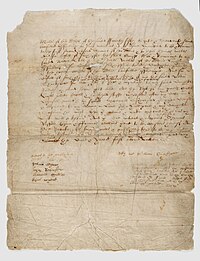Probate

Probate is a big word that means when someone with lots of things or money (like a house, cars, or toys) dies, the government has to make sure their things go to the right people. When we die and leave things behind, we're called the "decedent."
Think of probate like a big game of "Who Gets What?" The government (usually a court) makes sure that the things the decedent leaves behind go to the people they want them to go to based on something called a "will."
A "will" is just a fancy word for a note that says who gets what when we die.
Sometimes people don't leave a will behind or they don't make it clear who gets what. In that case, the government has to figure out who gets what by looking at something called "intestate succession" which is like a set of rules that says who gets what when there is no will.
Now, probate can take a long time, and it can be really complicated. The government has to follow a lot of rules and make sure everything is done fairly. They have to tell all the people who might get something that the decedent died and that there's going to be a "Who Gets What?" game.
Sometimes people don't like the result of the game and think the government made a mistake. If that happens, they can try to change the result by talking to a lawyer or asking the court to look at everything again.
The most important thing to remember about probate is that it's a way for the government to make sure that everything we leave behind goes to the right people. It might be complicated, but it's an essential process that keeps everything fair for everyone involved.
Think of probate like a big game of "Who Gets What?" The government (usually a court) makes sure that the things the decedent leaves behind go to the people they want them to go to based on something called a "will."
A "will" is just a fancy word for a note that says who gets what when we die.
Sometimes people don't leave a will behind or they don't make it clear who gets what. In that case, the government has to figure out who gets what by looking at something called "intestate succession" which is like a set of rules that says who gets what when there is no will.
Now, probate can take a long time, and it can be really complicated. The government has to follow a lot of rules and make sure everything is done fairly. They have to tell all the people who might get something that the decedent died and that there's going to be a "Who Gets What?" game.
Sometimes people don't like the result of the game and think the government made a mistake. If that happens, they can try to change the result by talking to a lawyer or asking the court to look at everything again.
The most important thing to remember about probate is that it's a way for the government to make sure that everything we leave behind goes to the right people. It might be complicated, but it's an essential process that keeps everything fair for everyone involved.
Related topics others have asked about:
